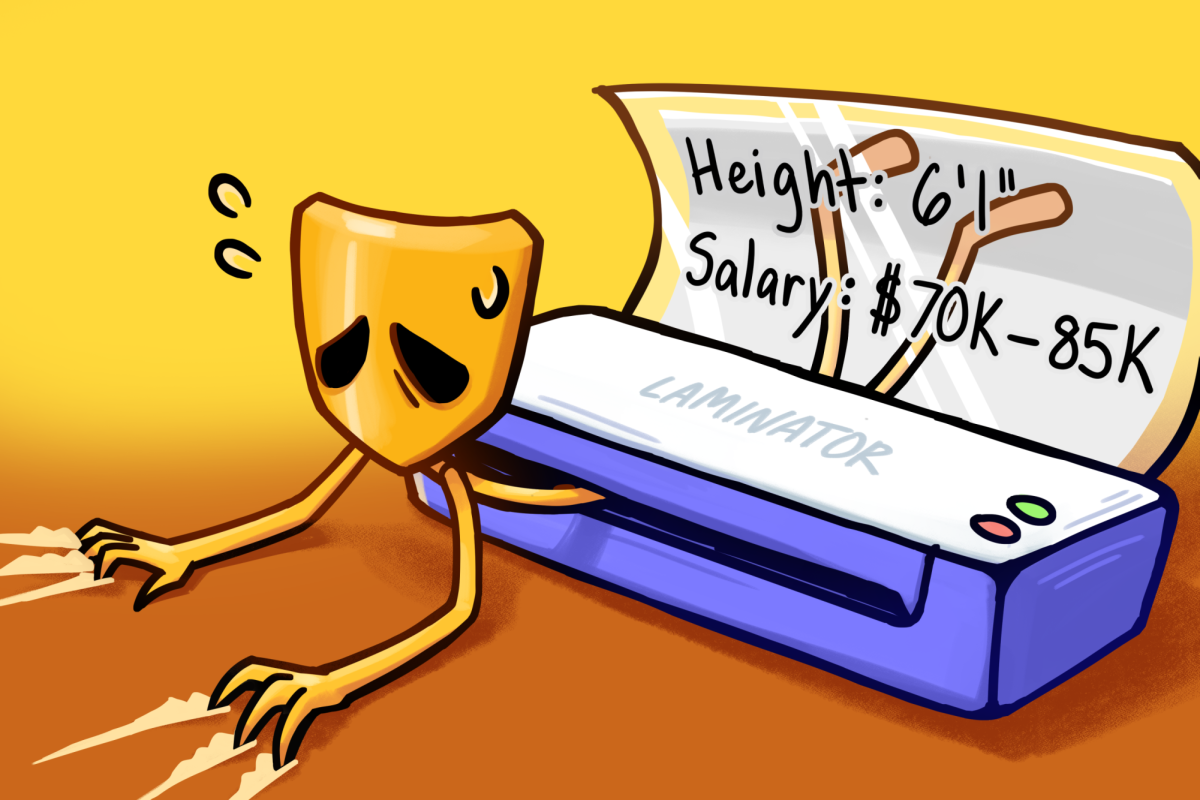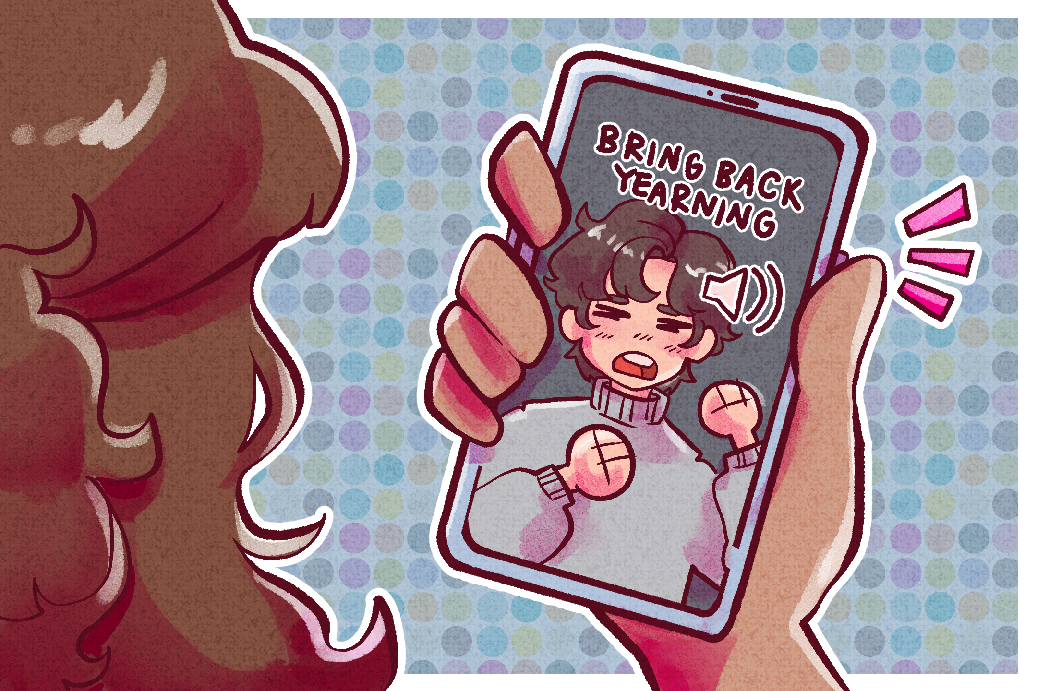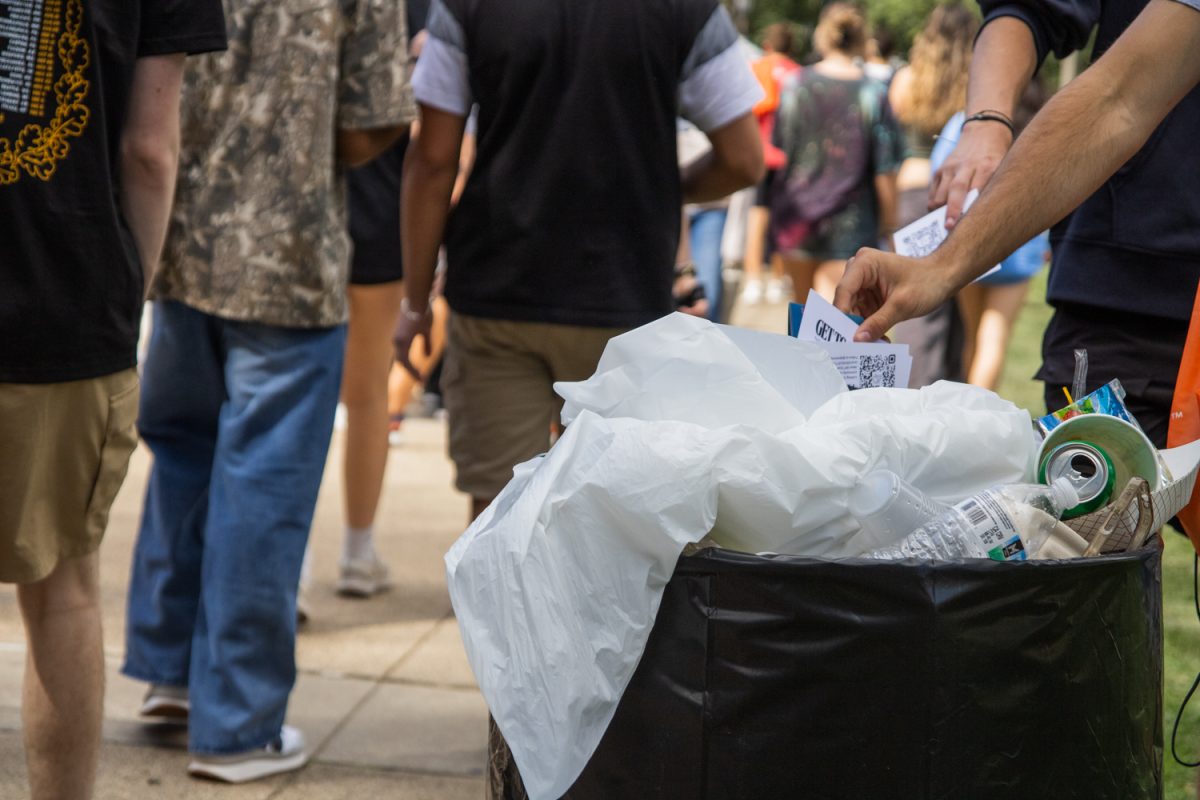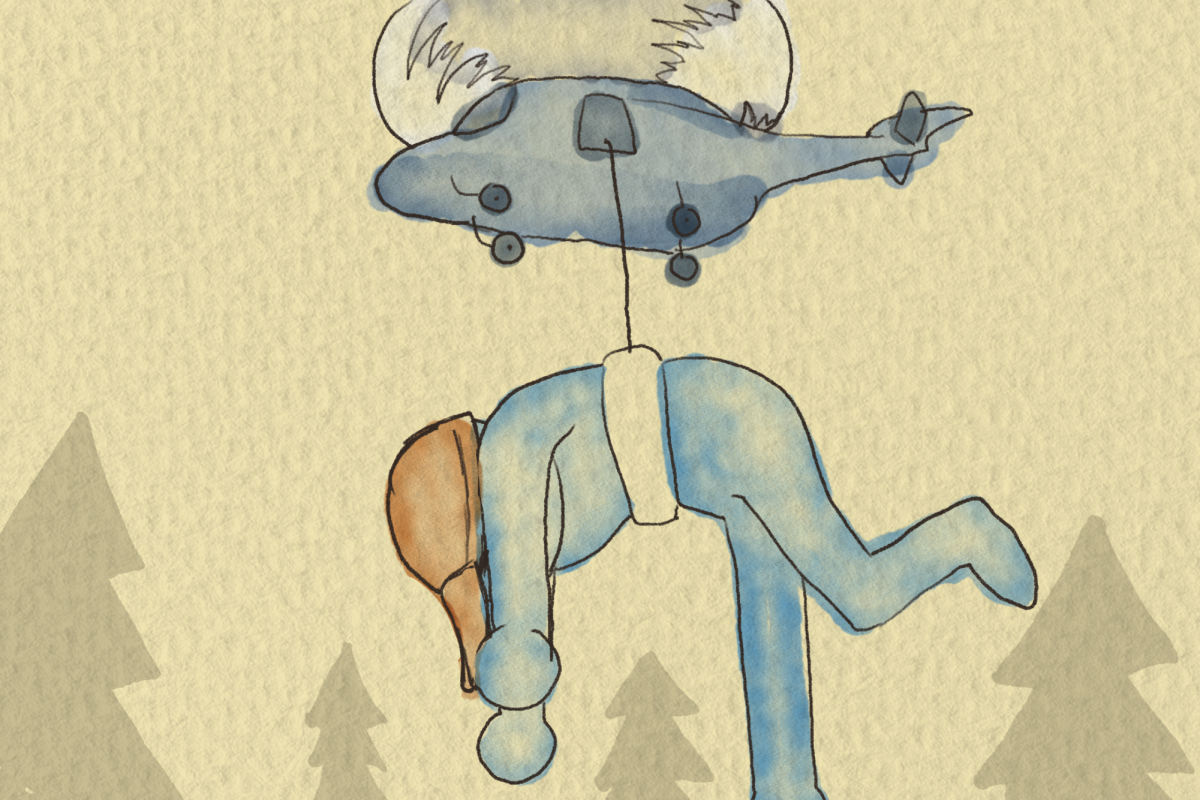“Bro, why don’t you just major in that instead? You’d make so much more money.”
If you’re a current or prospective college student, you may very well hear this regularly.
Students frequently attribute majors to a number — or how many “figures” you’ll apparently make right after graduation, according to the annual Illini Success report that lists financial outcomes of program-specific graduates.
Students frequently turn to reports like Illini Success, LinkedIn and the “#1 job site in the world,” Indeed, to make educated, calculated decisions about their future.
So, what the heck does this have to do with Grindr?
Get The Daily Illini in your inbox!
Numbers. College students are constantly surrounded with temptations and distractions. Some of these include alcohol and drugs, peer and parental pressure, and numbers: median starting salaries, student loan rates, GPA, credit hours and more.
And, for many gay college students, “stats.”
On the No. 1 LGBTQ+ dating app Grindr, primarily targeted at gay men, “stats” are details about your body: age, height and weight. Your bio also lists race, position (top, bottom or vers), what you’re looking for (hookups, dates or friends with benefits), HIV status and more. The app also has a “tags” section to include interests and kinks.
All of this is awfully similar to Indeed’s platform to upload a resume (“stats”) and plug in your major (“position”), jobs you may be interested in (“looking for”), certifications (“HIV status”) and skills (“tags”). It’s all right there, listed on a profile that will often not have a picture of the person’s face. Or even a picture at all.
This is what Grindr has ground gay men down to: facts. An app with over 13 million monthly active users has reduced homosexual desire to names like “looking,” “DL” and “footlover.”
A user will scroll through the app looking at the stats, well-angled pictures of six-packs, Hanes underwear and yes, lots of sexual photographs of hundreds of nearby users — just like a prospective student may scroll through the Illini Success report looking at average salaries, employment rates and median signing bonuses.
Grindr, for gay college students — out or closeted — is one of the few major outlets for relationships available. However, there is little to no semblance of opportunity to meet people looking for dates and monogamous relationships on the app.
It is, qualitatively, a hypersexualized hookup app. Or, as gay psychiatrist Jack Turban puts it, an “underground digital bathhouse.”
It’s low-key porn — and it’s addicting.
“When a neutral action (clicking on Grindr) is paired with a pleasurable response in the brain (orgasm), humans learn to do that action over and over again,” Turban said.
Grindr even has a setting to save pre-written messages so you can send them quicker and with less effort, likening the action of seeking a partner to nothing more than emotionless, nameless mass mail. This likens flirting to a quantitative game of prolificity — not unlike the features on Indeed to create a universal resume and apply to dozens of job openings in a short amount of time.
Instead of generic LinkedIn messages like “Congratulations” and “I’m excited to announce,” Grindr is chock-full of pre-written messages like “What you looking for?” and “Got pics?”
The consistent overexposure to relatively pornographic content operates as a form of homoerotic variable ratio reinforcement. The gamble of logging onto Grindr and either taking five minutes or five hours to find a sexual partner for the night — or perhaps not finding one at all — is what keeps users hooked.
Like a sexual slot machine, Grindr has roped its users into a dopamine-reinforcement loop and desensitized their view of sexual intimacy. For frequent users, it has perhaps even made Grindr their primary source of sexual stimulation, thus decreasing natural drives to flirt and interact with others in non-sexualized environments.
Tangentially, Grindr produces a significantly negative impact on the reputation of the multitude of gay college students who do not use hookup apps or pornography for sexual stimulation. This serves little to no resistance to Sigmund Freud’s outlandish psychoanalytic claim that “mutual masturbation is the sexual aim most often found in intercourse between (homosexuals),” rather than human intimacy.
Grindr’s jerk-off (“jo”) underworld advertises potential sexual partners like job openings, invigorating the unfortunate stereotype that gays are just “down to f—.”
Grindr’s filtering feature functions as a lustful form of confirmation bias, which is “the natural tendency to seek out information or interpret things in a way that supports your existing beliefs.” Just like you can filter jobs on Indeed by keywords like “part-time” or “remote,” you can narrow the scope of your sexuality with keywords like “top” or “hookups.”
The ability to strategically trim search results encourages homosexuals even more so to make their decisions solely based on blind facts about a person’s faceless appearance and sexual interests.
Confirmation bias leads to “errors in judgment.” Along with Grindr’s cork board of kinks, the filtering feature eliminates the adrenaline-rushing mystery of homosexual encounters by giving users all of the physical information they think they need to make a calculated decision.
Studies have shown that viewing short-form content, like TikTok and television shows, “characterized by high arousal and quick change to focus, could impair capacity to maintain concentration.”
Grindr is no different. Quick shifts between several different users’ chats and photo albums provide no opportunity for a reasonable supplement or alternative to healthy, in-person interactions. There is no focus or concentration between users.
In fact, Grindr and pornography can have drastic negative effects on processes such as inhibitory control and decision-making when it comes to sexuality and relationships.
It’s no mistake that Grindr’s icon is a mask. This behind-the-curtain look into someone’s appearance and sexual desires in the riskless world of cyberspace is the proposed advantage of an app 77% of users report feeling unhappy after using. You can flirt without ever showing your face.
This is the precise fallacy of the app: Grindr promotes the notion that same-sex attraction — or attraction in general — is rooted in impersonal facts. Grindr filters out humans based on rigid physical “figures.”
But it’s not a numbers game.
A six-pack isn’t a six-figure salary. There’s no success report on finding someone to be happy with. While majors in supply chain management have a 98% employment rate, sex-first users of Grindr likely have a far lower healthy relationship rate.
Humans aren’t one-page laminated resumes. Humans take time, concentration and consideration. People should not be confined to greyed out Grindr avatars or slightly photoshopped LinkedIn headshots.
Hypersexualized dating apps are pornographic and addictive, promoting unhealthy representations of physicality and sexuality.
There are in-person alternatives, like welcoming local venues: Anthem in downtown Champaign and GayBar in an off-campus house basement.
Regardless, apps like Grindr do not define gays or homosexuality as a whole. Gay people are living, breathing human beings with totally natural sexual desires that no one should reduce to quasi-pornographic, quantitative “networking.”
Take off the mask and embrace the dangerous romanticism of non-sexualized interactions and non-factual decision-making. Make mistakes and dare to explore your sexuality without a measuring tape.
And with your clothes on.
Alex is a freshman in Business.










